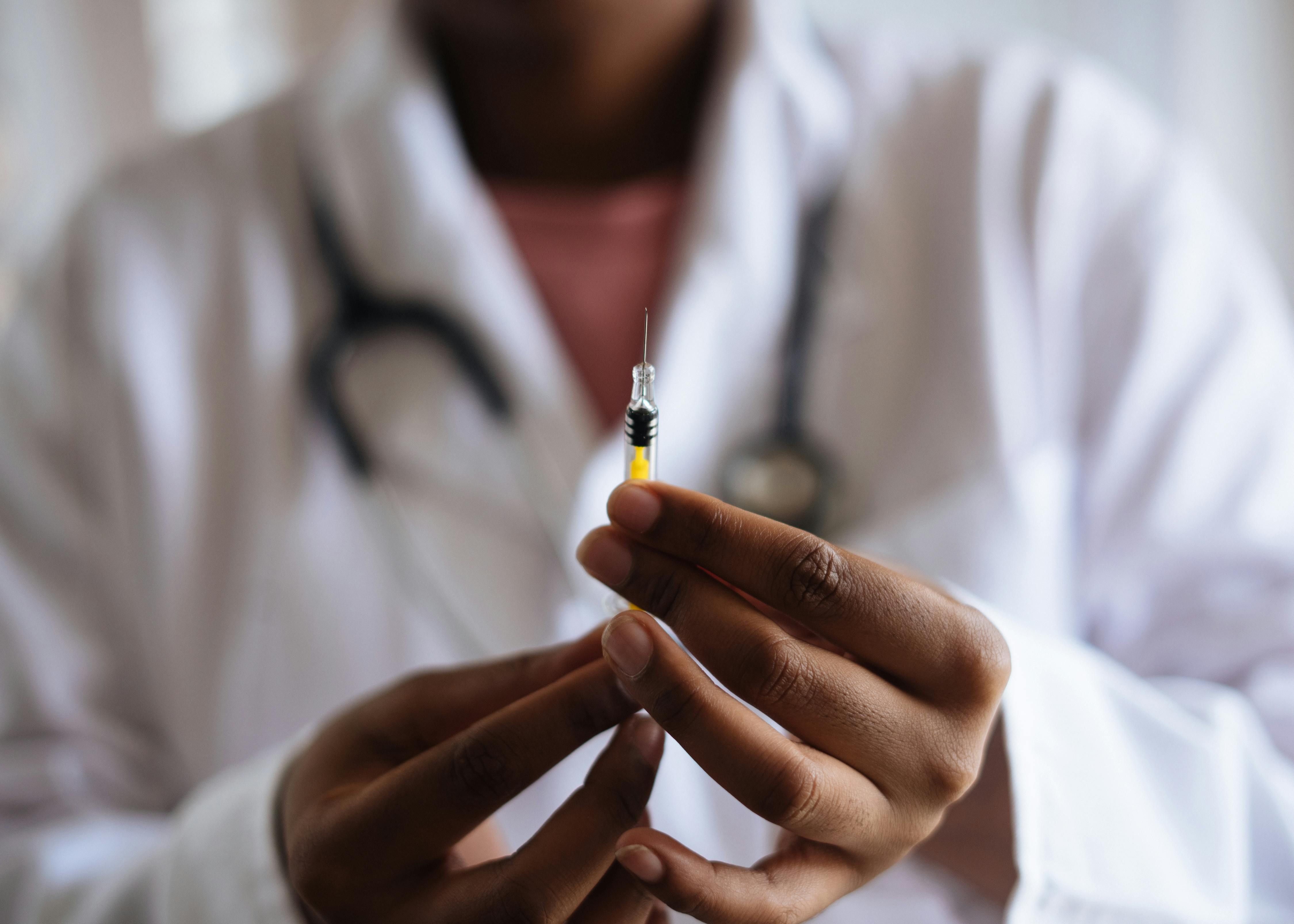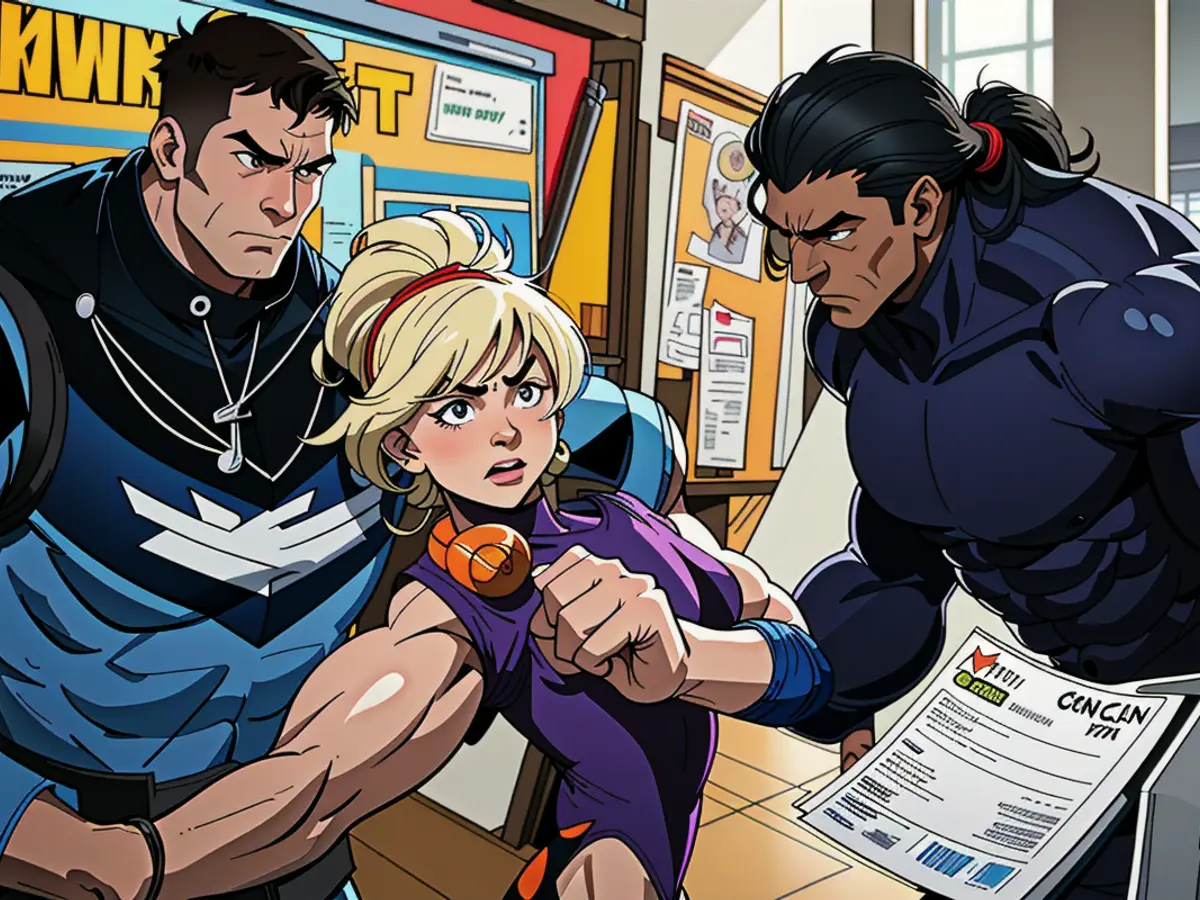Governor of Hawaii Urges Immediate Steps to Safeguard U.S. Children from Measles Threat
The Danger Looming Over America's Children
Listen up, folks, because it's time to talk about a serious issue that's threatening the wellbeing of our children – measles. This highly contagious virus is causing havoc in states like Texas, New Mexico, Oklahoma, and more, putting lives at risk, overwhelming healthcare resources, and exposing vulnerable communities.
Sadly, we've already seen the tragic outcome of this – the devastating loss of a school-age child in Gaines County, Texas, the first measles-related death in over a decade in our country. And if we don't act fast, more heartbreaking stories could follow.
But you know what? This doesn't have to happen. We have the power to prevent it.
Measles can hospitalize up to 1 in 5 people it infects and claims the life of 1 in every 1,000. Before the measles vaccine was introduced in 1963, the United States saw hundreds of thousands of cases every year, leading to complications like pneumonia, encephalitis, and death.
Back in the '90s, nationwide vaccination efforts virtually eliminated the disease in the US by achieving vaccination rates of 95% across the nation, establishing herd immunity and preventing the disease from spreading. Today, unfortunately, vaccination rates have dropped in many states, with experts fearing that we're at risk of losing the elimination of the disease and measles may once again become a threat.
Vaccination campaigns are life-savers during outbreaks of deadly viruses. I've seen the lifesaving power of vaccines firsthand. During the Covid-19 pandemic, when I was serving as lieutenant governor, we vaccinated over a million people in Hawaii, saving thousands of lives and achieving the lowest infection and mortality rates in the country.
In 2019, a measles outbreak swept through the island nation of Samoa. The spread of anti-vaccine misinformation in the previous year had caused fear and uncertainty, leading many families to not vaccinate their children against measles. The result was a devastating outbreak that infected over 5,000 people and killed 83, mostly children. In December of 2019, I led an emergency medical mission from Hawaii to vaccinate 37,000 people in Samoa over 36 hours, rapidly raising the vaccination rate and helping to end the deadly outbreak.
According to the US Centers for Disease Control and Prevention report from October, there are 14 states in the US where measles vaccination rates among kindergartners have fallen to dangerously low levels under 90%.
Communities with vaccination rates below the 95% threshold necessary to maintain herd immunity become breeding grounds for measles outbreaks. In Gaines County, Texas, almost 1 in 5 kindergartners entering the school system is unvaccinated against measles.
Declining vaccination rates are driven by the concerning spread of anti-vaccine misinformation, skepticism, and complacency. The top public health official in the US, Health and Human Services Secretary Robert F. Kennedy Jr., has suggested that the MMR vaccine that protects against measles, mumps, and rubella is not safe. This is false. The measles vaccine has saved an estimated 94 million lives worldwide over the past 50 years, and the US Food and Drug Administration has approved the MMR vaccine as safe and effective since 1971.
Kennedy also continues to spread confusion by describing vaccination as a "personal choice" and promoting vitamin A supplementation as a primary response to the measles outbreak. Let me be clear: Vitamin A can lessen measles complications once infection has occurred, but it does not prevent the disease. To suggest otherwise, even implicitly, distracts from the proven, lifesaving effect of vaccines and puts children at risk.
As to vaccination being a "personal choice," I strongly disagree with Kennedy, and I consider his equivocation as dangerous and irresponsible. It's much more than a personal choice; it's a choice to protect not only ourselves but our entire community. As a physician, a governor, and a father, I believe it is our moral responsibility to protect vulnerable people by contributing to herd immunity against viral infections through safe and effective vaccination.
In the face of the current outbreaks, I urge the US Department of Health and Human Services, under Kennedy's leadership, to act swiftly and decisively. The department must mount an extensive, science-based vaccination campaign to halt the spread of measles and prevent future tragedies. This campaign must focus on four essential pillars: education, community engagement, accessibility, and responsible public policy.
Education is crucial. We must aggressively counter misinformation by providing clear, factual, and scientifically grounded information. This approach involves transparent communication regarding vaccine safety and effectiveness and should engage trusted local voices such as healthcare providers, educators, faith leaders, and community advocates.
We must emphasize genuine community engagement. Communities should be active participants in this public health effort, not merely passive recipients. When we engage respectfully, listening to local concerns and responding thoughtfully, we build trust and improve public health outcomes. Community-based approaches have repeatedly proved effective at increasing vaccination rates, and they should guide our current response.
Accessibility to vaccines must be prioritized. In regions with limited healthcare infrastructure, innovative solutions – such as mobile vaccination units, community health fairs, and partnerships with local organizations – can bridge gaps and ensure vaccines reach everyone. No one should face barriers of affordability or convenience when it comes to vaccination.
Finally, we need strong, responsible public policy that balances individual liberties with our collective responsibility. Policies that require vaccination for school entry, excepting legitimate medical exemptions, have historically maintained high immunization rates and protected community health. These regulations must be enforced firmly yet compassionately, recognizing that public safety is paramount.
Now is not the time for equivocation or delay. We must take urgent action to protect our families and communities. It is our collective moral responsibility to prevent more infection, more suffering, and more deaths of American children through our commitment to safe and effective vaccines and public health education.
We can stop the deadly spread of measles in our country by launching a sustained emergency vaccination campaign, starting in the states and communities with the lowest vaccination rates and the greatest vulnerability. We have the data. We have the resources. Now we must find the compassion, the strength, and the will to do what we know is right and protect America's children.
Additional Insights
- Various vaccination clinics have been set up across affected areas, but progress has been limited, with only a small number of doses administered in some places like Texas.
- Public health officials are stressing the importance of vaccination and the dangers of measles, especially in communities where vaccine hesitancy is high.
- Public health experts are urging stricter quarantine requirements and enhanced contact tracing to mitigate the outbreak, particularly in Texas.
- The CDC is monitoring the situation closely, providing guidance on measles prevention, especially as the travel season begins.
- Critics have criticized the response of the federal government, including the comments of Health and Human Services Secretary Robert F. Kennedy Jr. on using various treatments for measles, which lack scientific backing.
- Key challenges ahead include addressing vaccine exemptions and hesitancy, multi-state coordination, and rapid response and communication by public health agencies.
- Thousands of lives could be saved in America if the current decline in measles vaccination rates is reversed, as illustrated by the tragic death of a school-age child in Gaines County, Texas.
- In many communities across the country, vaccination rates have fallen dangerously low, exposing vulnerable populations and contributing to the current measles outbreaks. For instance, almost 1 in 5 kindergartners in Gaines County, Texas, are unvaccinated against measles.
- Despite false claims made by some public figures, the MMR vaccine is proven safe and effective with an estimated 94 million lives saved worldwide over the past 50 years. It is essential for maintaining herd immunity and preventing the resurgence of deadly diseases like measles.









